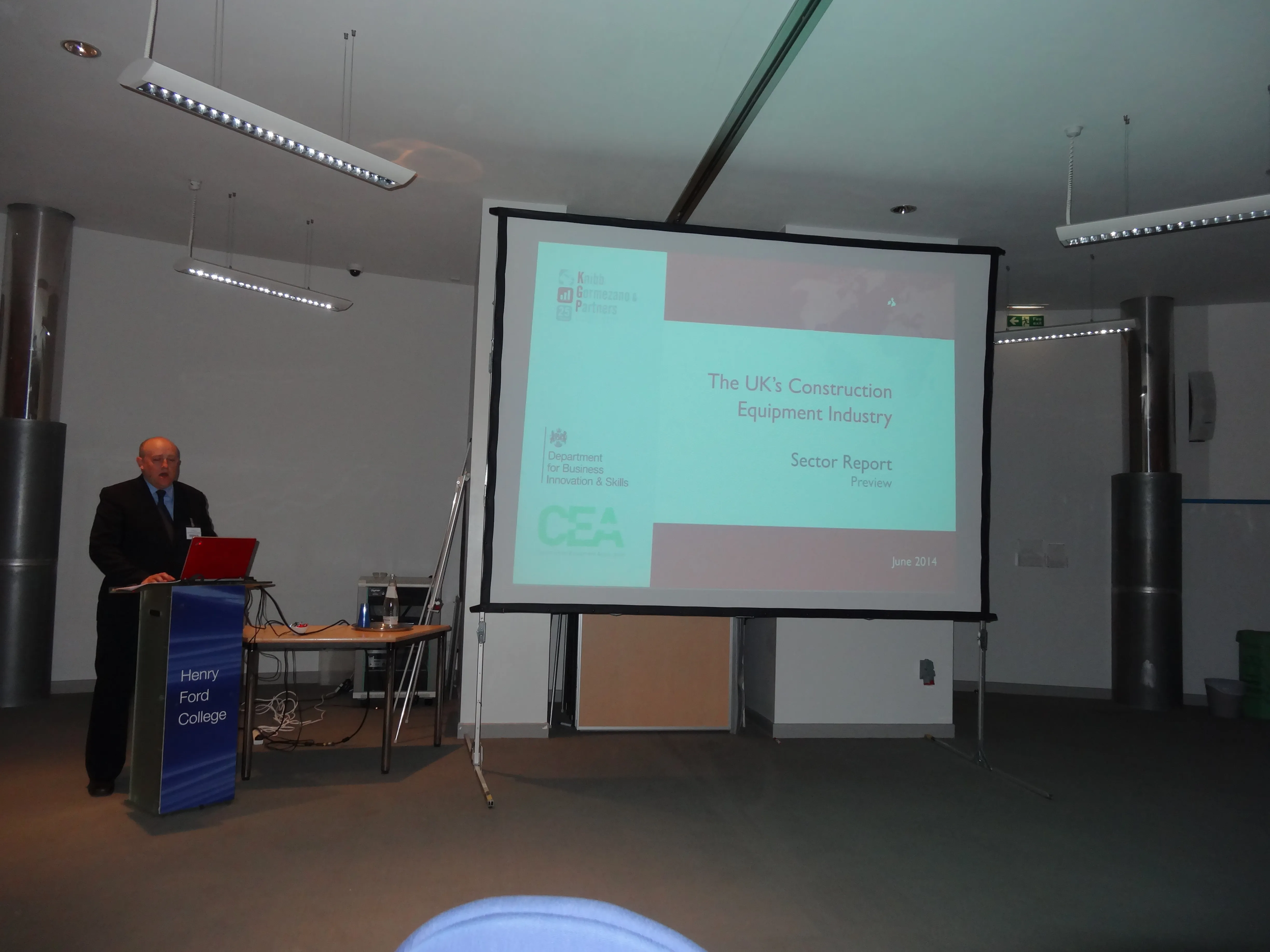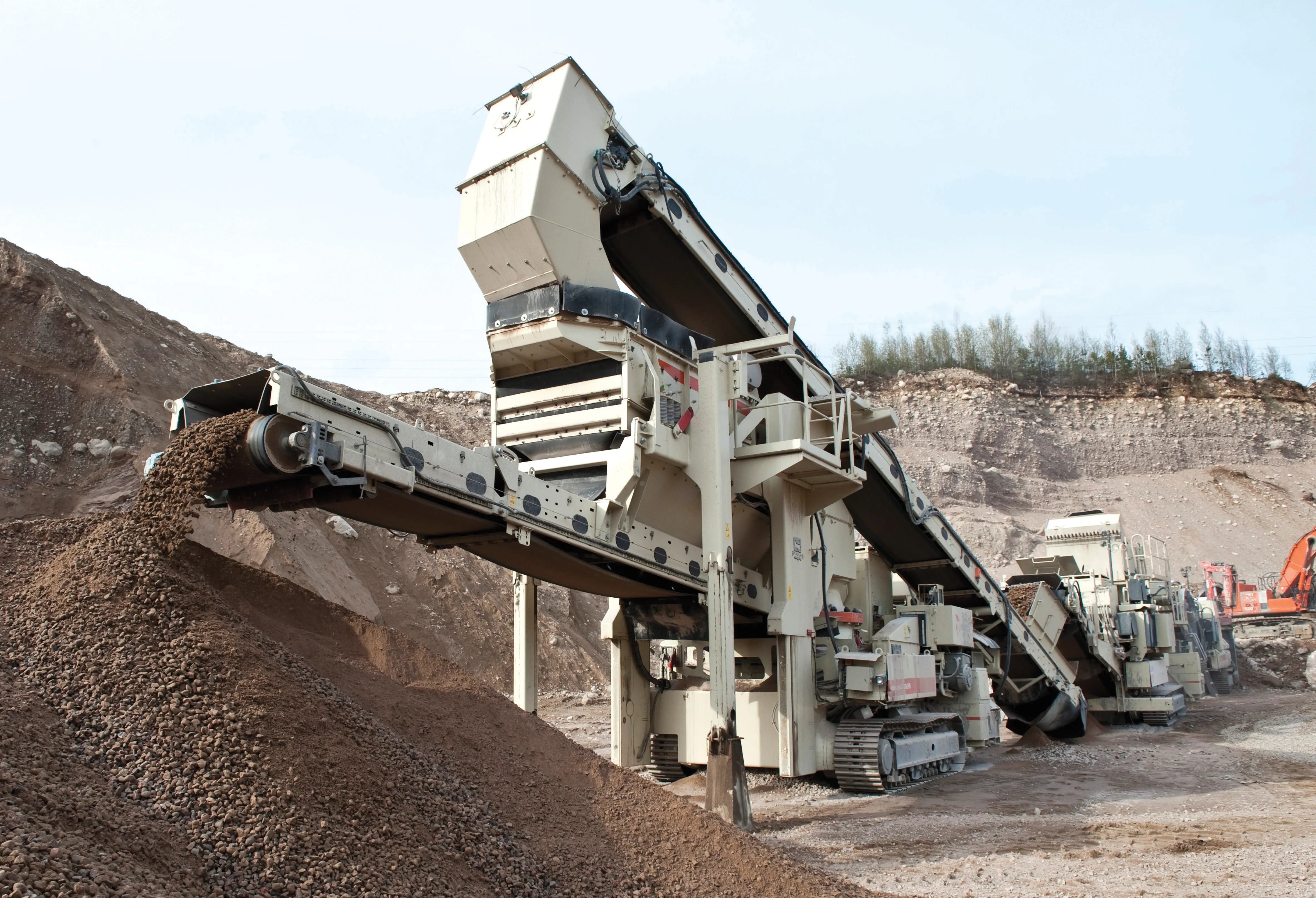Investment in advanced machine electronics capability; further investment in training and apprenticeship programs; and support for the UK as a continued centre for R&D are all key to securing growth within the British construction equipment industry, according to a comprehensive new Construction Equipment Association (CEA) commissioned report.
Further recommendations for the industry in The UK Construction Equipment Sector Report are the need to ensure the cross fertilisation of advanced design, manufactu
June 11, 2014
Read time: 4 mins

Investment in advanced machine electronics capability; further investment in training and apprenticeship programs; and support for the UK as a continued centre for R&D are all key to securing growth within the British construction equipment industry, according to a comprehensive new 3418 Construction Equipment Association (CEA) commissioned report.
Further recommendations for the industry in The UK Construction Equipment Sector Report are the need to ensure the cross fertilisation of advanced design, manufacturing and production technologies between the automotive and construction equipment industries; to develop a detailed technology roadmap for the global construction equipment sector; to secure the maintenance of and support for a competitive UK construction equipment industry, while securing growth within it and Europe as a whole, to counter the threat posed by emerging markets; and being ready to meet future CO2 legislation based on machine productivity improvements, beyond that focused on CO2 engine emission reductions.
The Department for Business, Innovation & Skills (BIS) supported report, the first of its kind for ten years and based on a national survey involving representatives from over 60 industry companies, welcomed what it said were the UK construction equipment industry’s “significant” productivity gains in recent years due to improved telematics and innovation through R&D, partly due to the need to meet emissions legislation. This has led, notes report author Alex Woodrow, MD of Knibb Gormezano & Partners, to construction equipment industry output reaching or exceeding pre-recession [2008] levels.
Presenting some key statistics in the report, which was also supported by Off Highway Research and published yesterday during the CEA Innovation & Engineering Conference held at Loughborough University, central England, Woodrow said UK construction equipment industry revenues stood at over €13.56 billion (£11 billion) in 2012-13; with 50,000 units being produced, €246.67 million (£200 million) spent on R&D, and 40,000 people employed within the industry. The 2012-13 figures, said Woodrow, placed the UK as the world’s fifth largest manufacturer of construction equipment. Further figures revealed there are 1,500 companies operating within the UK construction equipment industry, with leading, globally renowned OEMs such as255 JCB, 1222 Terex, 178 Caterpillar and 2300 Komatsu, generating 44% of annual UK industry revenues.
Giving his reaction to the report, CEA chief executive Rob Oliver said it was going to be a “tremendous asset” to his body. “It gives a very good summing up of what the industry is about and gives us the basis of a manifesto which we can take to government. There are key areas we need to develop, especially with regard to the skills agenda. We know we need to attract more and more varied skills into our industry, and we also need to make sure that construction equipment is put forward in a very strong way to the government to get their support.
“I hope now we are moving into a new phase where more of the R&D is concentrated on customer requirements rather than legislative ones. Another interesting thing that’s come out [of the report] is the productivity of the sector compared to ten years’ ago. Although the [UK] recession was a bitter blow, it did mean that companies came out leaner and fitter. It’s encouraging too to see the number of companies still serving our sector, with the report stating 1,500 companies. That’s a great story for us to tell.”
Oliver also welcomed yesterday’s confirmation from the Technology Strategy Board (TSB), a UK public body operating at arm's length from the Government and reporting to BIS, that it will be launching a new multi-million euro competition for funding innovation projects in the Off Highway Sector that align with the recommendations of the UK Construction Equipment Sector Report.
Further recommendations for the industry in The UK Construction Equipment Sector Report are the need to ensure the cross fertilisation of advanced design, manufacturing and production technologies between the automotive and construction equipment industries; to develop a detailed technology roadmap for the global construction equipment sector; to secure the maintenance of and support for a competitive UK construction equipment industry, while securing growth within it and Europe as a whole, to counter the threat posed by emerging markets; and being ready to meet future CO2 legislation based on machine productivity improvements, beyond that focused on CO2 engine emission reductions.
The Department for Business, Innovation & Skills (BIS) supported report, the first of its kind for ten years and based on a national survey involving representatives from over 60 industry companies, welcomed what it said were the UK construction equipment industry’s “significant” productivity gains in recent years due to improved telematics and innovation through R&D, partly due to the need to meet emissions legislation. This has led, notes report author Alex Woodrow, MD of Knibb Gormezano & Partners, to construction equipment industry output reaching or exceeding pre-recession [2008] levels.
Presenting some key statistics in the report, which was also supported by Off Highway Research and published yesterday during the CEA Innovation & Engineering Conference held at Loughborough University, central England, Woodrow said UK construction equipment industry revenues stood at over €13.56 billion (£11 billion) in 2012-13; with 50,000 units being produced, €246.67 million (£200 million) spent on R&D, and 40,000 people employed within the industry. The 2012-13 figures, said Woodrow, placed the UK as the world’s fifth largest manufacturer of construction equipment. Further figures revealed there are 1,500 companies operating within the UK construction equipment industry, with leading, globally renowned OEMs such as
Giving his reaction to the report, CEA chief executive Rob Oliver said it was going to be a “tremendous asset” to his body. “It gives a very good summing up of what the industry is about and gives us the basis of a manifesto which we can take to government. There are key areas we need to develop, especially with regard to the skills agenda. We know we need to attract more and more varied skills into our industry, and we also need to make sure that construction equipment is put forward in a very strong way to the government to get their support.
“I hope now we are moving into a new phase where more of the R&D is concentrated on customer requirements rather than legislative ones. Another interesting thing that’s come out [of the report] is the productivity of the sector compared to ten years’ ago. Although the [UK] recession was a bitter blow, it did mean that companies came out leaner and fitter. It’s encouraging too to see the number of companies still serving our sector, with the report stating 1,500 companies. That’s a great story for us to tell.”
Oliver also welcomed yesterday’s confirmation from the Technology Strategy Board (TSB), a UK public body operating at arm's length from the Government and reporting to BIS, that it will be launching a new multi-million euro competition for funding innovation projects in the Off Highway Sector that align with the recommendations of the UK Construction Equipment Sector Report.









